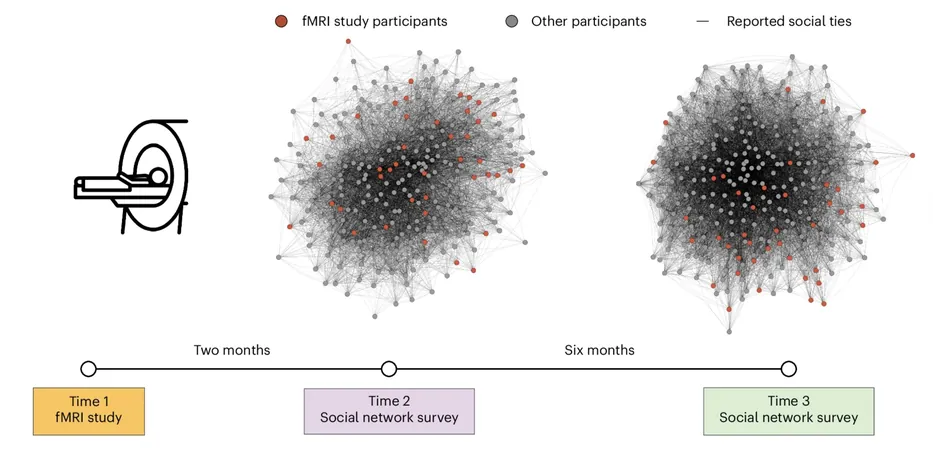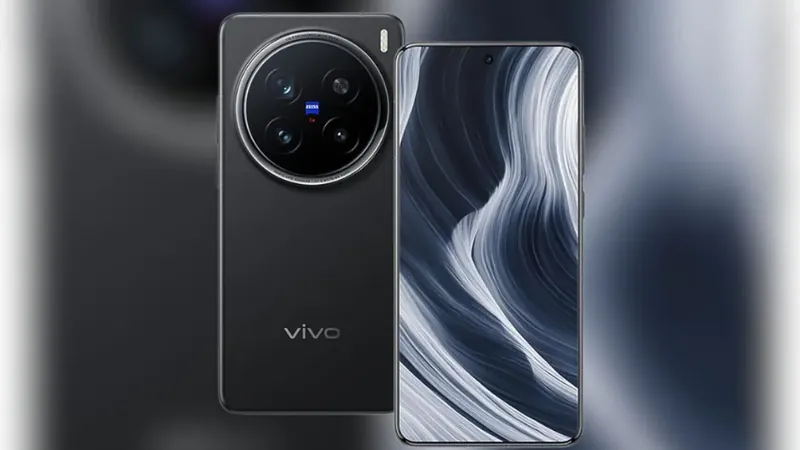
Unlocking Friendship: Your Brain's Secret Predictors of Connection!
2025-09-23
Author: Sarah
Ever Wondered Why Some People Just 'Click'? You’re Not Alone!
Throughout our lives, we meet countless individuals—all with varying interests and backgrounds. But why do some of these encounters blossom into deep friendships while others fade away? It’s a question that has intrigued psychologists and social scientists for years.
New Study Reveals Neural Patterns Might Hold the Key!
A groundbreaking study from the University of California, Los Angeles (UCLA), and Dartmouth College has ventured into uncharted territory by examining the neural responses of individuals watching videos. This research, published in the prestigious journal *Nature Human Behavior*, proposes that people who become friends share strikingly similar brain activity patterns when exposed to the same experiences.
"We were inspired by a long-standing puzzle: why do some people 'click' or connect right away, while others don't?" says Carolyn Parkinson, the study’s senior author. Previous research has shown that friends tend to perceive the world in similar ways, but this study digs deeper—exploring whether these neural responses could predict future friendships.
How Did They Uncover This Fascinating Connection?
The researchers orchestrated an intriguing experiment involving incoming university students who were just moving to a new town. They initially captured these students' brain activity using fMRI technology while they watched various video clips, all before they had a chance to forge any friendships.
Following this, the team tracked the students throughout their first academic year, documenting who became friends and the strength of their connections.
The Results Are In: Brain Similarity Predicts Friendship!
The study revealed an astonishing correlation: students who exhibited similar neural responses during the video viewing were more likely to become friends later on. "Even before they met, if their brains reacted similarly to the same videos, they had a higher chance of forming a friendship,” Parkinson noted. This insight suggests that friendships are not merely products of chance encounters but are influenced by shared interpretations of the world.
What’s Next? Exploring the Mutual Influence of Friends on Each Other!
This research opens exciting doors in the study of social relationships. By identifying how shared brain responses can foster friendships, the study invites further exploration into what happens next—do friendships alter brain activity over time? Parkinson and her colleagues are investigating how the bonds people form may reshape their neural patterns.
They’re also delving into what specific psychological processes drive these neural similarities. Are they linked to shared values, senses of humor, or common focuses? The research team hopes to expand their investigations into more diverse populations to uncover the universalities of these dynamics.
A New Lens on Friendship: The Future of Social Connections!
As Parkinson puts it, "We’re not just studying how friendships form; we’re also interested in how these interpersonal connections can enhance cooperation, trust, and bonding within larger groups." With each new discovery, we come closer to understanding the neural underpinnings of our most meaningful relationships.

 Brasil (PT)
Brasil (PT)
 Canada (EN)
Canada (EN)
 Chile (ES)
Chile (ES)
 Česko (CS)
Česko (CS)
 대한민국 (KO)
대한민국 (KO)
 España (ES)
España (ES)
 France (FR)
France (FR)
 Hong Kong (EN)
Hong Kong (EN)
 Italia (IT)
Italia (IT)
 日本 (JA)
日本 (JA)
 Magyarország (HU)
Magyarország (HU)
 Norge (NO)
Norge (NO)
 Polska (PL)
Polska (PL)
 Schweiz (DE)
Schweiz (DE)
 Singapore (EN)
Singapore (EN)
 Sverige (SV)
Sverige (SV)
 Suomi (FI)
Suomi (FI)
 Türkiye (TR)
Türkiye (TR)
 الإمارات العربية المتحدة (AR)
الإمارات العربية المتحدة (AR)